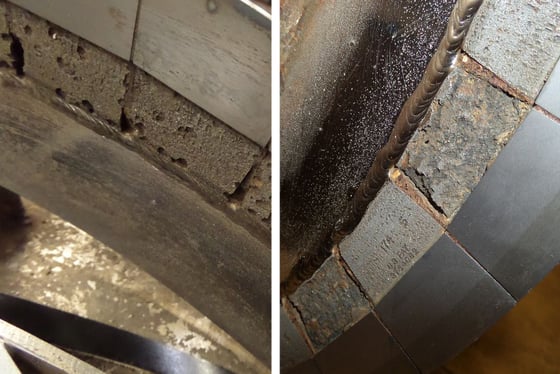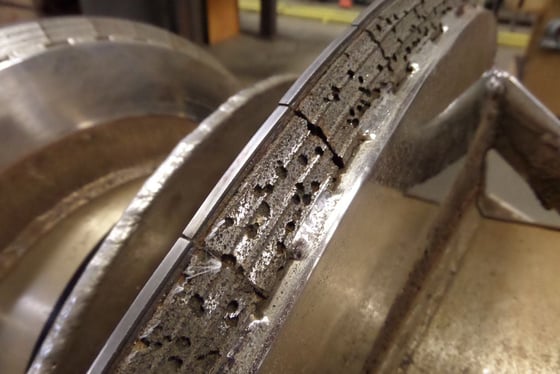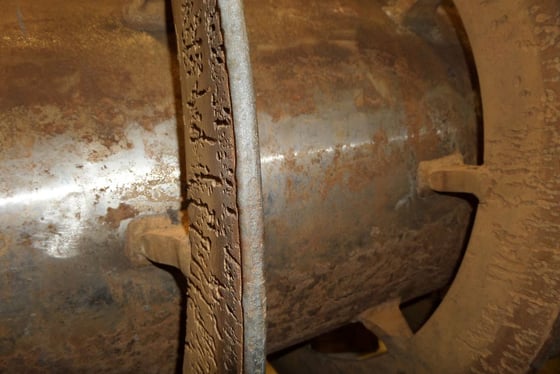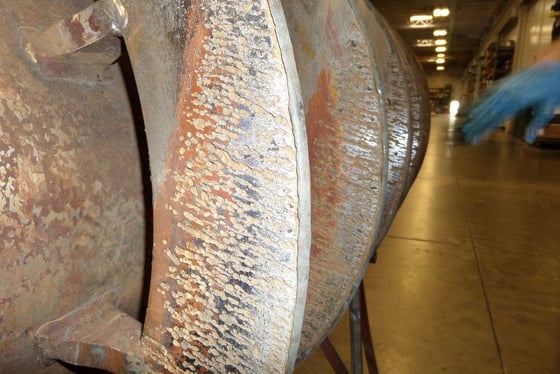Do’s and Don'ts of Cleaning a Decanter Centrifuge
Using chemicals to clean your decanter centrifuge?
Read this before you reach for that bottle!
From time to time, plant operators send us maintenance questions. Below is a good one. When it comes to cleaning your centrifuge, don’t cut corners. But over-cleaning your centrifuge can cause problems too.
Q: We’ve been using muriatic acid to clean our centrifuge, filling the bowl and letting it spin slowly overnight to clean it. We’ve lost a lot of tiles on our scroll. I’m just wondering if the acid could be doing more harm than good?
A: YES, the acid is doing more harm than good. In typical wastewater applications, water is more than sufficient to clean a decanter centrifuge. It’s important to note that mineral and dirt buildup inside the rotating assembly is rarely a problem.
Never leave a concentrated acid solution in a decanter centrifuge overnight or for a longer period. Here’s what happens: the bonding material used to hold the tungsten carbide tiles to the scroll and backup plates will dissolve. This occurs because of the low pH of acidic cleaning solutions. Losing TC tiles can be a result of cleaning a decanter centrifuge with muriatic, hydrochloric, ferric, citric or any strong corrosive chemical cleaning agent. Over time, even highly chlorinated effluent used for flushing the centrifuge can weaken the solder bond.

Damaged flights due to chemicals.
Because of the design of a decanter centrifuge, there is always liquid retained inside the bowl, even at a standstill. A significant material loss to the metals can occur where the acid or caustic soda is concentrated for prolonged periods, including the bowl and scroll. Acid attacks all metals, carbon steel is most affected, but we have seen loss effects on stainless steel (304 and 316) and, in rare instances, duplex stainless steel. If using chemicals is a part of your plant’s centrifuge cleaning process always follow with a few clean water CIP's to flush and dilute.

Metal pitting on the back-up plates.

Aggressive metal pitting on stainless steel flights.
NOTE: Some dewatering applications require the use of cleaning agents stronger than water (food-grade, sanitary applications). In these industries, the design of the decanter centrifuge allows for aggressive cleaning and the tungsten carbide tiles are not used on the scroll. A thorough water flushing is always followed after the cleaning process.

You can see where the liquid and acid pooled during standstill. There is aggressive damage on the stainless steel flights due to prolonged retention of the liquid/acid in the bowl.